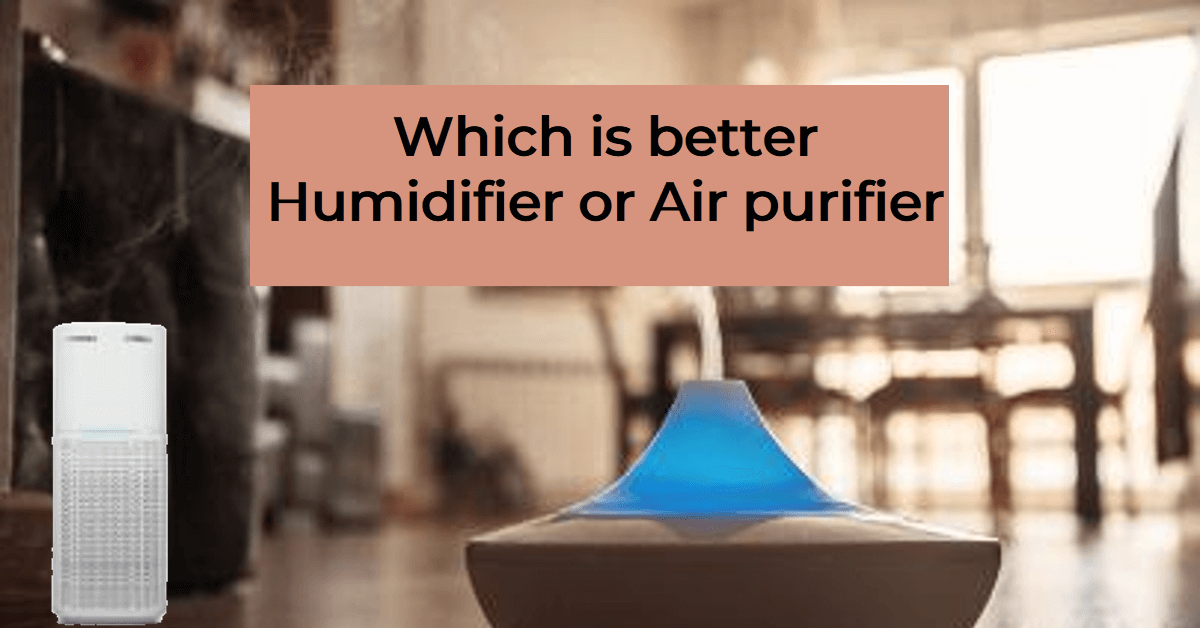When it comes to improving indoor air quality, the debate over “Which is better Humidifier or Air purifier”, has sparked considerable discussion. The importance of maintaining clean and healthy indoor air cannot be overstated, especially considering the significant amount of time individuals spend indoors. In this article, we delve into the intricacies of this ongoing debate, examining the functions, benefits, and considerations associated with both humidifiers and air purifiers to help readers make informed decisions for their indoor air quality needs.
Humidifiers and air purifiers serve distinct yet complementary purposes in enhancing indoor air quality. Humidifiers work by adding moisture to the air, which can help alleviate dryness and maintain optimal humidity levels in indoor spaces. This moisture can be particularly beneficial during dry climates or winter months when indoor air tends to be drier, leading to issues such as dry skin and irritated nasal passages. On the other hand, air purifiers are designed to remove airborne pollutants and allergens from the air, such as dust, pollen, pet dander, and smoke. By capturing these contaminants, air purifiers help reduce the risk of respiratory issues and allergies, promoting better overall respiratory health.
When determining “which is better air purifier or humidifier” suited for their needs, individuals should consider various factors such as environmental factors, health considerations, room size, layout, maintenance requirements, and cost. Each device has its advantages and limitations, depending on these factors and personal preferences. By weighing the benefits and considerations associated with both humidifiers and air purifiers, individuals can make informed decisions to create a healthier and more comfortable indoor environment for themselves and their families.
Introduction
Indoor air quality is a critical aspect of maintaining a healthy living environment. The air we breathe indoors can contain various pollutants and allergens that may negatively impact our health. In this article, we delve into the ongoing debate: “Which is better Humidifier or Air purifier” By understanding the functions and benefits of each device, individuals can make informed decisions to improve their indoor air quality and overall well-being.
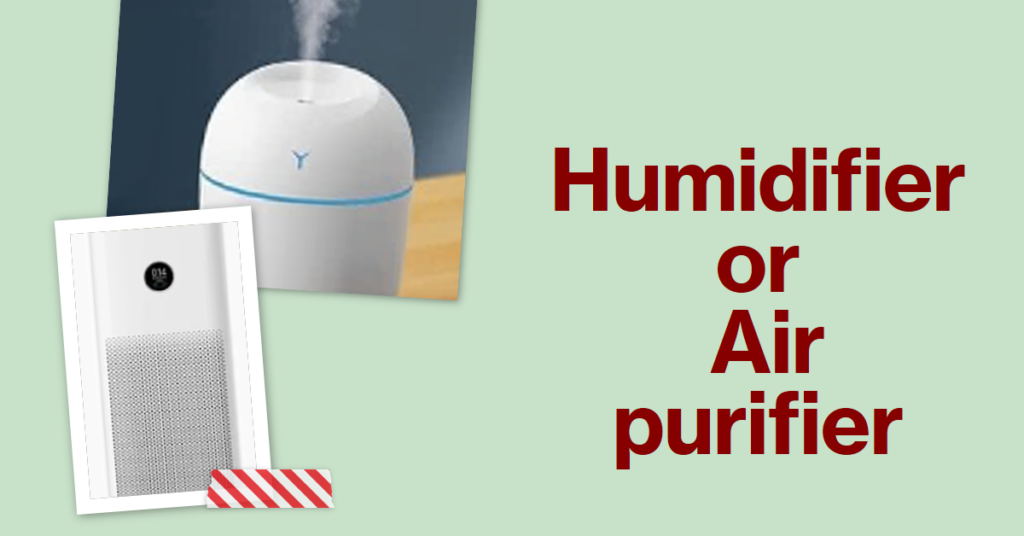
Understanding Humidifiers and Air Purifiers
Humidifiers work by adding moisture to the air, helping to alleviate dryness and maintain optimal humidity levels in indoor spaces. There are several types of humidifiers available, including evaporative, ultrasonic, and steam vaporizers. Each type has its advantages and limitations, depending on factors such as room size and personal preference.
On the other hand, air purifiers are designed to remove airborne pollutants and allergens from the air, such as dust, pollen, pet dander, and smoke. They utilize filters or purification technologies like HEPA filters, activated carbon filters, or UV-C light to capture or neutralize contaminants. Like humidifiers, air purifiers come in various types, including HEPA, activated carbon, and ionizers, each with its unique mechanisms for air purification.
To understand “air purifier or humidifier which is better” lets first discuss types of both:
| Type of Humidifier | Description |
|---|---|
| Evaporative | Utilizes a fan to blow air through a wet wick or filter, causing water to evaporate into the air. |
| Ultrasonic | Produces a fine mist by vibrating a metal diaphragm at an ultrasonic frequency. |
| Steam Vaporizers | Boils water to produce steam, which is then released into the air. |
| Type of Air Purifier | Description |
|---|---|
| HEPA | Uses high-efficiency particulate air filters to capture airborne particles. |
| Activated Carbon | Absorbs odors, gases, and volatile organic compounds (VOCs) using activated carbon filters. |
| Ionizers | Emit ions that attach to airborne particles, causing them to settle out of the air or stick to surfaces. |
Health Benefits of Humidifiers
Humidifiers offer a range of health benefits, particularly for individuals prone to dry skin, respiratory issues, and sinusitis. By maintaining optimal humidity levels, humidifiers help prevent dryness in the nasal passages and throat, reducing the risk of irritation and discomfort. This moisture can also alleviate symptoms of respiratory conditions like asthma and allergies, making breathing easier and more comfortable.
Additionally, humidifiers can improve indoor air quality by reducing the concentration of airborne pollutants and allergens. By adding moisture to the air, they can help settle dust and other particles, preventing them from becoming airborne and exacerbating respiratory symptoms. Overall, using a humidifier can promote healthier breathing and contribute to a more comfortable indoor environment.
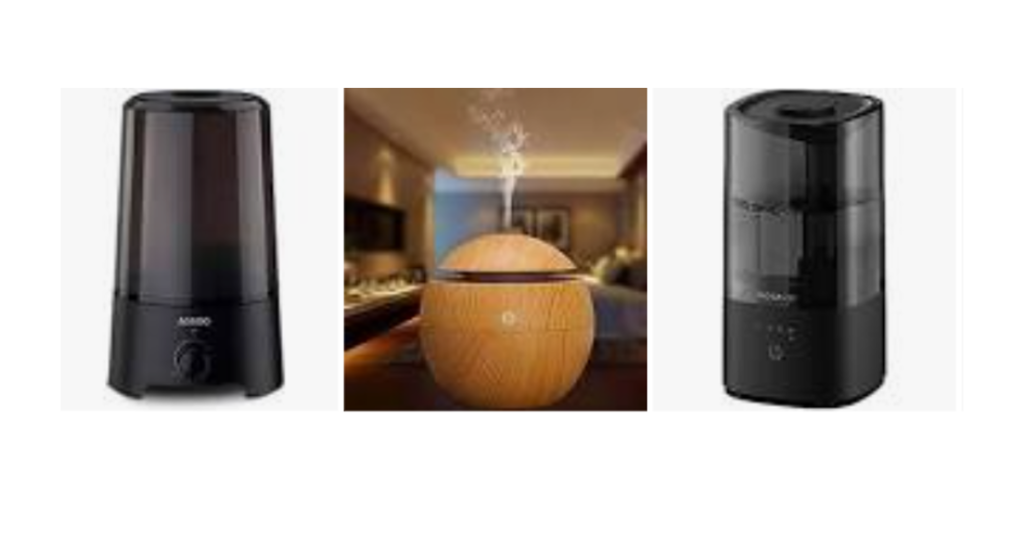
| Health Benefits of Humidifiers |
|---|
| Relief from dry skin |
| Prevention of respiratory issues |
| Improvement in indoor air quality |
Health Benefits of Air Purifiers
Air purifiers play a crucial role in maintaining clean and healthy indoor air by effectively removing airborne pollutants and allergens. One of the primary benefits of air purifiers is the removal of particles such as dust, pollen, pet dander, and mold spores, which can trigger allergic reactions and respiratory issues. By capturing these contaminants, air purifiers help reduce the risk of asthma attacks, allergic rhinitis, and other respiratory conditions.
Moreover, air purifiers can also eliminate odors and harmful gases from the air, improving overall indoor air quality and creating a more pleasant living environment. For individuals living in urban areas or near industrial sites where outdoor air pollution is a concern, air purifiers provide an additional layer of protection against harmful pollutants. By investing in an air purifier, individuals can breathe easier and enjoy cleaner air indoors, promoting better respiratory health and overall well-being.
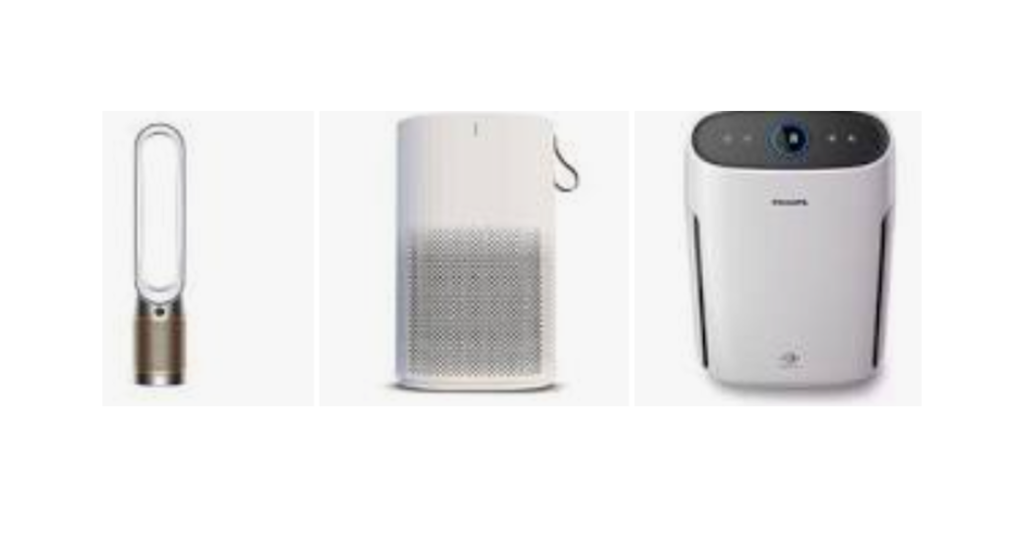
| Health Benefits of Air Purifiers |
|---|
| Removal of airborne pollutants and allergens |
| Reduction in asthma and allergy symptoms |
| Prevention of respiratory infections |
Factors to Consider When Choosing Between a Humidifier and Air Purifier
When deciding “Which is better a humidifier or air purifier“, several factors should be taken into consideration to determine which device best suits your needs and preferences. Environmental factors such as humidity levels and pollution levels in your area can influence the effectiveness of each device. Additionally, personal health considerations, room size, layout, and maintenance requirements should also be taken into account to ensure optimal performance and maximum benefits.
| Factors to Consider When Choosing |
|---|
| Environmental factors (humidity levels, pollution) |
| Health considerations (respiratory conditions, allergies) |
| Room size and layout |
| Maintenance requirements |
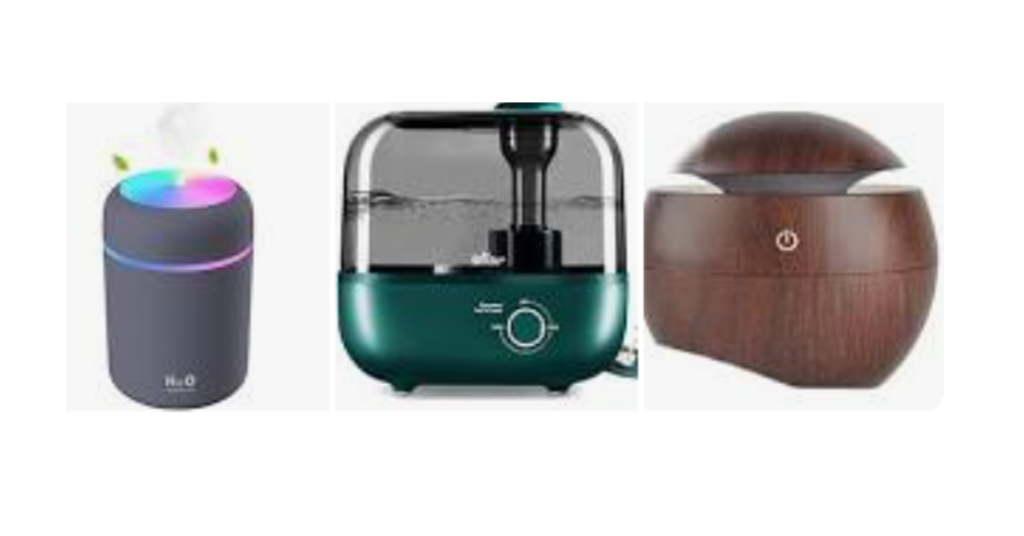
Effectiveness in Addressing Specific Concerns
Both humidifiers and air purifiers excel in addressing specific concerns related to indoor air quality and respiratory health. Humidifiers are particularly effective in dry climates or during the winter months when indoor air tends to be drier, leading to issues such as dry skin and irritated nasal passages. By adding moisture to the air, humidifiers help maintain optimal humidity levels, promoting healthier breathing and preventing respiratory issues.
On the other hand, air purifiers are highly effective in removing airborne pollutants and allergens from the air, making them ideal for allergy-prone individuals or areas with high levels of pollution. By capturing and neutralizing contaminants, air purifiers provide relief from asthma and allergy symptoms, reducing the risk of respiratory infections and promoting better overall respiratory health. For comprehensive indoor air management, a combination of both humidifiers and air purifiers may be necessary, especially in environments where multiple indoor air quality issues are present.
| Concern | Effective Solution |
|---|---|
| Dry climates | Humidifiers |
| Winter months | Humidifiers |
| Allergy-prone | Air purifiers |
| High pollution | Air purifiers |
| Comprehensive | Combination of humidifiers and air purifiers |
Cost Comparison: Upfront and Ongoing Expenses
When comparing humidifiers and air purifiers, it’s essential to consider both upfront and ongoing expenses associated with each device. The initial purchase price of humidifiers and air purifiers can vary depending on the type, brand, and features. While some models may be more affordable upfront, others may come with higher price tags but offer additional benefits such as advanced filtration technologies or larger coverage areas.
In addition to the initial purchase price, ongoing expenses such as maintenance costs should also be factored into the decision-making process. Humidifiers require regular cleaning and maintenance to prevent the growth of mold and bacteria in the water tank and filter. Replacement filters or cartridges may also be needed periodically to ensure optimal performance and hygiene. Similarly, air purifiers require filter replacements to maintain effectiveness in capturing airborne pollutants and allergens. These ongoing maintenance costs should be taken into account when budgeting for either device.
| Expenses | Consideration |
|---|---|
| Initial purchase price | Varies based on type, brand, and features |
| Maintenance costs | Includes cleaning, filter replacements, etc. |
Environmental Impact
Another important consideration for “which is better air humidifier or air purifier” is their environmental impact. Both devices consume energy during operation, contributing to overall energy consumption and environmental footprint. However, some models may be more energy-efficient than others, depending on factors such as power consumption and usage patterns.
In addition to energy consumption, the environmental impact of humidifiers and air purifiers also extends to waste generated from filter replacements and other disposable parts. Disposable filters and cartridges contribute to landfill waste, so opting for models with reusable or recyclable components may help reduce environmental impact. Additionally, considering eco-friendly options such as energy-efficient models or devices with eco-friendly certifications can further minimize the environmental footprint of indoor air quality management.
| Environmental Impact | Consideration |
|---|---|
| Energy efficiency | Energy consumption, usage patterns |
| Waste generation | Disposable filters, recyclable components |
| Eco-friendly options | Energy-efficient models, eco-friendly certifications |
User Experience and Convenience
The user experience and convenience of using a humidifier or air purifier can significantly influence satisfaction and usage. Factors such as ease of setup and operation, noise levels during operation, and portability and placement options should be considered when evaluating each device.
Humidifiers and air purifiers should be easy to set up and operate, with intuitive controls and user-friendly features. Noise levels during operation can also impact user experience, particularly for devices used in bedrooms or other quiet spaces. Models with adjustable settings or quiet operation modes may be preferable for individuals sensitive to noise.
Portability and placement options are also important considerations, especially for individuals with limited space or specific room layouts. Compact and lightweight designs make it easier to move and position the device as needed, while built-in features such as caster wheels or carrying handles enhance portability and convenience.
| User Experience and Convenience | Consideration |
|---|---|
| Ease of setup and operation | Intuitive controls, user-friendly features |
| Noise levels during operation | Adjustable settings, quiet operation modes |
| Portability and placement options | Compact, lightweight designs, caster wheels, carrying handles |
Conclusion
In conclusion, the debate between “Which is better Humidifier or Air purifier” ultimately boils down to individual needs, preferences, and specific indoor air quality concerns. By carefully considering factors such as health benefits, cost, environmental impact, user experience, and convenience, individuals can make informed decisions to create a healthier and more comfortable indoor environment. Whether it’s alleviating dryness, reducing airborne pollutants, or promoting better respiratory health, both humidifiers and air purifiers play valuable roles in indoor air quality management.
FAQ related to “Which is better Humidifier or Air purifier”
Do I need a humidifier if I have a purifier?
While air purifiers and humidifiers serve different purposes, they can complement each other in improving indoor air quality. An air purifier primarily removes pollutants, allergens, and other particles from the air, whereas a humidifier adds moisture to the air, which can be beneficial for respiratory health and comfort, especially in dry environments. If your indoor air is both polluted and dry, using both devices together can be advantageous. However, if you only need to address air quality issues, an air purifier might suffice.
Does an air purifier replace a humidifier?
No, an air purifier does not replace a humidifier, as they target different aspects of indoor air quality. While an air purifier eliminates airborne contaminants, such as dust, pollen, pet dander, and mold spores, a humidifier adds moisture to the air to alleviate dryness, which can cause discomfort and respiratory issues. Depending on your specific indoor air quality needs, you may require either one or both devices to create a healthier and more comfortable living environment.
Is it good to sleep with an air purifier and humidifier?
Sleeping with both an air purifier and a humidifier can be beneficial for improving sleep quality and overall well-being, especially if you suffer from allergies, respiratory issues, or live in a dry climate. An air purifier helps remove airborne pollutants that can disrupt sleep and exacerbate respiratory conditions, while a humidifier adds moisture to the air, preventing dryness that can cause discomfort and congestion during sleep. However, it’s essential to maintain both devices properly, ensuring they are clean and functioning correctly to avoid potential health risks associated with stagnant water in humidifiers or inadequate filtration in air purifiers.
What are the primary differences between a humidifier and an air purifier?
Humidifiers and air purifiers serve distinct purposes in improving indoor air quality. A humidifier adds moisture to the air, alleviating dryness, which can be particularly beneficial in arid climates or during the winter months when indoor air tends to be dry. On the other hand, an air purifier removes airborne pollutants, such as dust, pollen, pet dander, mold spores, and other allergens, thereby enhancing air cleanliness and reducing the risk of respiratory issues.
How do I determine whether I need a humidifier or an air purifier, or both?
The choice between a humidifier and an air purifier depends on your specific indoor air quality needs and concerns. If you experience dryness-related symptoms like dry skin, irritated sinuses, or static electricity, a humidifier may be beneficial. Conversely, if you suffer from allergies, asthma, or other respiratory conditions aggravated by airborne particles, an air purifier might be more suitable. In some cases, especially in regions with both dry and polluted air, using both devices concurrently can provide comprehensive indoor air quality improvement.
Can a humidifier or an air purifier replace each other’s functions?
No, a humidifier cannot replace the function of an air purifier, and vice versa. While both devices contribute to better indoor air quality, they target different aspects of air composition. A humidifier adds moisture to the air but does not remove airborne contaminants, while an air purifier filters out pollutants but does not increase humidity levels. Therefore, depending on your specific air quality needs, you may require one or both devices to achieve optimal indoor air quality and comfort.
DheerajSonwane is a dedicated writer with expertise in air purification technologies. He focuses on providing well-researched content to help readers improve indoor air quality in homes and businesses. As the lead writer at AirPurifierMaster.com, Dheeraj offers practical advice his insightful reviews guide individuals in choosing the best air purifiers for their needs.

